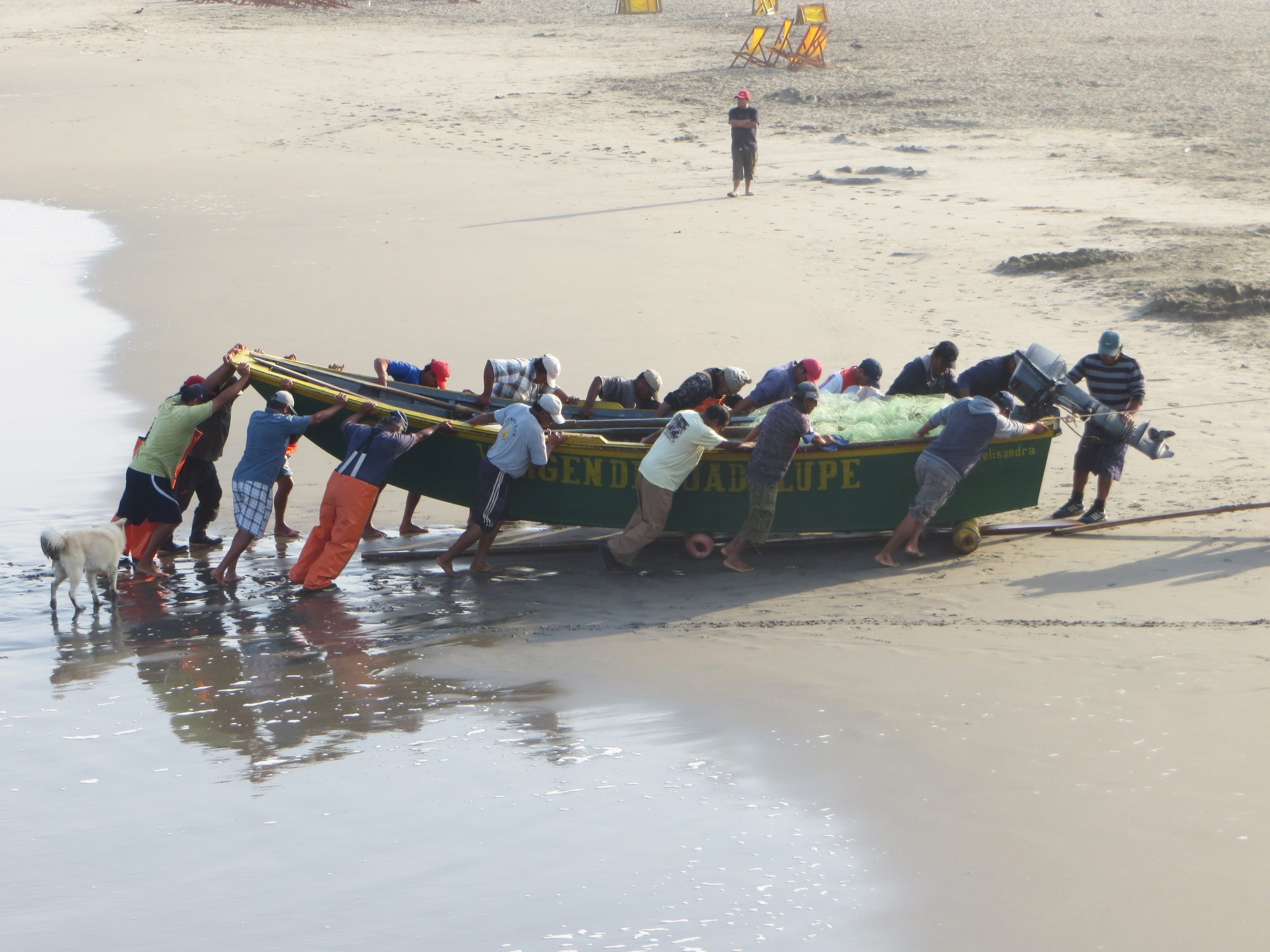
Most people work on land. Unless rocked by an earthquake, their work stations remain still. Not so for fishers. Their entire work platform rocks and rolls ceaselessly. Non-fishers cannot imagine the risks they face. Fishers work in unique conditions. There are no regular hours. On-board accommodation can be extremely cramped and unhealthy.
The difficulties don’t end when the catch is landed. Fishworkers include those in the harbours; those who process the fish and carry out post-harvest activities; those who work these into markets. Even though women carry out these activities—some even more than men—their contribution is undervalued. They work in difficult conditions, without healthcare or decent facilities, facing violence and harassment.
Trade union membership is low. Which means labour standards and legal frameworks, like those laid down by the International Labour Organization (ILO) to protect fishers, are often not to their benefit. There are also concerns worldwide about forced labour, human trafficking and exploitation of migrant labour.
ICSF has, since its inception in 1986, worked to improve the conditions of work onboard fishing vessels through legal and policy interventions. ICSF has advocated for the inclusion of small-scale fishing vessels in the ILO Work in Fishing Convention C188, which lays down binding requirements concerning work on board fishing vessels, occupational safety, health and medical care at sea and ashore, rest periods, written work agreements. ICSF has worked in partnership with FAO and ILO to address child labour issues in fishing.

Engaging with the Decent work process related to the adopted Work in Fishing Convention (WFC), 2007 has been an important part of ICSF’s work. ICSF saw engagement with the ILO process as an opportunity to focus greater attention on issues related to the conditions of work in the small-scale fisheries sector, including aspects such as safety at sea, social security, and remuneration and recognition of shore -based workers, especially women.
Fishing is arguably the world’s most dangerous vocation, reporting the highest rate of occupational fatalities among industries, made only worse by declining fish prices, overfished waters and shortened fishing seasons....
Nets for Social Safety is a first –of –its-kind study, specially commissioned by the ICSF, to focus on the growth and changing composition of social security provisions in the fisheries...

This Seminar design included two panel discussions. The first panel discussion focused on the main subject: “The Conditions of Fishworkers on Distant Water Vessels.” The second panel discussion was on...
This book studies migration, both international and internal, in the fisheries and the particular vulnerabilities facing migrant fishers with a view to improving the conditions on board vessels through legal...
Illuminating Hidden Harvests: the contributions of small-scale fisheries to sustainable development (hereinafter IHH) is a global study uncovering the contributions and impacts of small-scale fisheries through a multidisciplinary approach to...
This document provides a summary of recent FAO activities that support the implementation of the Code of Conduct for Responsible Fisheries with regard to safety at sea, social protection and...
The 2022 edition of The State of World Fisheries and Aquaculture coincides with the launch of the Decade of Action to deliver the Global Goals, the United Nations Decade of...
Child Labour is a widespread problem in various sectors of Ghana’s economy. Especially in the fishing industry, child labour is common, and children are involved in hazardous task that are...
Since 2000, IOM has been producing its flagship world migration reports every two years. The World Migration Report 2022, the eleventh in the world migration report series, has been produced to...
The report emphasises the importance of enhancing the efficiency of social protection programmes in Bangladesh to attain the SDGs, particularly to meet the needs of the ‘left behind’ population. In...
This article provides a backdrop to the employment and labour dimensions, and to earlier ILO labour standards of relevance to fishing. It discusses the process which led to the adoption...
The report is based on interviews with migrant fishers on three vessels operating in the Atlantic Ocean that are flagged or linked with Taiwan, including two longliners and a carrier...
This report provides an overview of global and regional trends in employment, unemployment, labour force participation and productivity, as well as dimensions of job quality such as employment status, informal...
The State of World Fisheries and Aquaculture aims to provide objective, reliable and up-to-date information to a wide audience – policymakers, managers, scientists, stakeholders and indeed everyone interested in the...